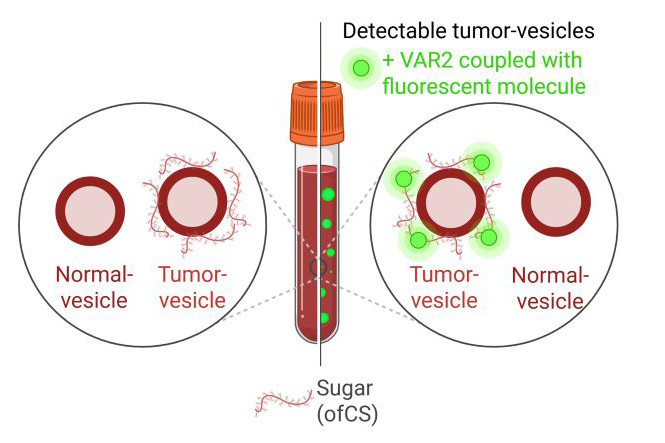Enciso-Martinez et al. have found that tdEVs carry a cancer-associated sugar modification called oncofoetal chondroitin sulphate (ofCS), which can be targeted using a protein derived from malaria, known as rVAR2. By tagging rVAR2 with a fluorescent marker, they successfully identified tdEVs in lab-grown cancer cells and in the blood of patients with pancreatic cancer.
This work was carried out through a multidisciplinary collaboration between researchers from LUMC (Agustin Enciso-Martinez, who led the study and Peter ten Dijke), Amsterdam UMC (Rienk Nieuwland and Edwin van der Pol) and the University of Copenhagen (Mette Agerbæk and Ali Salanti). This promising technique could open the door to earlier cancer detection and deeper insights into how tumours grow and resist treatment—potentially transforming cancer diagnostics and monitoring across multiple tumour types
